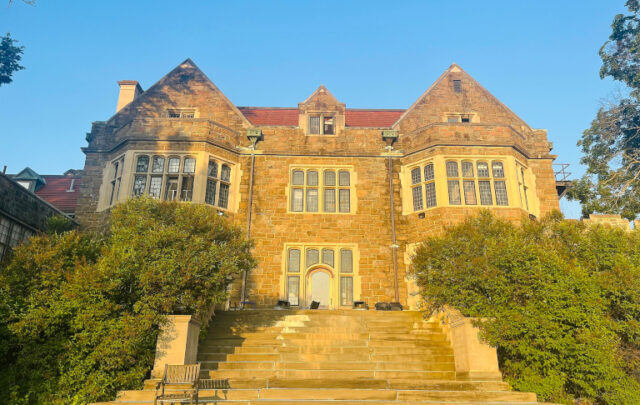 International development philanthropies have been testing out a simple solution to a complex problem. Can we help the poorest people in the world by just giving them money? If so, how about giving them money with no strings attached? An idea that simple to solve a problem that complex must be met with skepticism, especially from groups that thrive in the existing top-down international development aid structure.
International development philanthropies have been testing out a simple solution to a complex problem. Can we help the poorest people in the world by just giving them money? If so, how about giving them money with no strings attached? An idea that simple to solve a problem that complex must be met with skepticism, especially from groups that thrive in the existing top-down international development aid structure.
Yet philanthropists and development experts were intrigued enough to put money toward pilot projects, research efforts, and groups such as GiveDirectly. Such success led the Center for Global Development, based in Washington D.C., to convene experts and practitioners from the World Bank, UNICEF, and Tufts University to discuss whether cash transfers can provide a "benchmark" to other international aid programs. Cash’s liquidity can facilitate an "apples-to-apples" comparison for impact evaluation. That means the day may soon come when top-down-oriented programs will have to prove their value vis-à-vis direct cash.
The arguments for and against unconditional cash transfers to the poor reveal many personal and societal assumptions.
Here are some of the arguments against cash transfers (at an admittedly simplistic and caricatured level), followed by rebuttals in parentheses:
- Poor people are irresponsible and cannot handle money. They will spend it on temptation goods (the rebuttal was: you mean something like shoes?).
- Poor people can only make short-term investments, but the goal is long-term development (the rebuttal was: what if they know what that looks like better than we do?).
- Giving them money raises a moral hazard. They will work less (This argument is made domestically by Rep. Paul Ryan and others in relation to food stamps and other types of "welfare.") (the rebuttal was: the empirical evidence does not show moral hazard; and in cases where people are now "working less" it may mean instead of working an 18-hour day they are now able to work "only" a 16-hour day.).
- When the cash flow stops they will revert back to how they were before (the rebuttal was: this is currently being tested).
- Cash will be easily intercepted and only lead to further corruption (the rebuttal was: technology may enable a better direct line to the recipients via cell phone; top-down programs are also plagued by corruption; in fact, corruption is rampant so is neither an argument for or against any specific type of development aid).
Here are the counter-arguments in support of cash transfers, followed by rebuttals in parentheses:
- What would most aid recipients prefer to receive? Cash transfer proponents believe cash is the most flexible tool to achieve whatever it is (rebuttal: the saying about "teach them to fish and they’ll be fed for a lifetime").
- Cash transfer proponents believe their approach conveys important values such as mutual respect, dignity, and trusting people to do the right thing (rebuttal: but does not get to public goods or collective action such as the need to build roads and infrastructure).
Needless to say, the debate over unconditional cash transfers remains unsettled. It parallels a debate in climate policy over how to spend the revenues from a carbon price. The arguments in favor of unconditional cash transfers correspond to those supporting the "climate dividend" approach that returns funds to people. The parallels are more than just about giving people money, they are about how you see the evolution of the relationship between the money-rich/carbon-indebted 1 percent and the cash-poor/low-carbon 99 percent. The international development philanthropies supporting cash transfers may be especially interested in promoting the concept of financial tools that provide resources to the poorest people while advancing per capita equity in GHG emissions.
As a case study, researchers may wish to investigate the results from California’s recent issuance of a "Climate Credit," under the state’s cap and trade program. The credit appeared for the first time as a line item of about $35 on this April’s utility bills. It is a modest but important breakthrough for the idea that people should be entitled to the proceeds from a carbon price. Dr. Paul Niehaus, a Professor at the University of California San Diego and the co-founder and president of GiveDirectly, recently received his Climate Credit from his San Diego utility. Perhaps this is a case of "give and ye shall receive."
How will people spend these funds? Naysayers of climate dividends usually assume people will spend the funds on big-screen TVs, carbon-emitting vacations, etc. (see the arguments "against" above). The marketing for the Climate Credit urges recipients to spend the funds on LED lightbulbs and similar efficiency measures. Another approach is to turn the Climate Credit into a donation to an advocacy group working to promote climate dividends, following the idea that in order to maintain a carbon price, you need political support, and the best way to do that is to share the wealth… directly. The jury is still out, but perhaps the biggest problems of international development and climate change can be solved with cash (and dividend) transfers.
Photo credit: GiveDirectly website.























